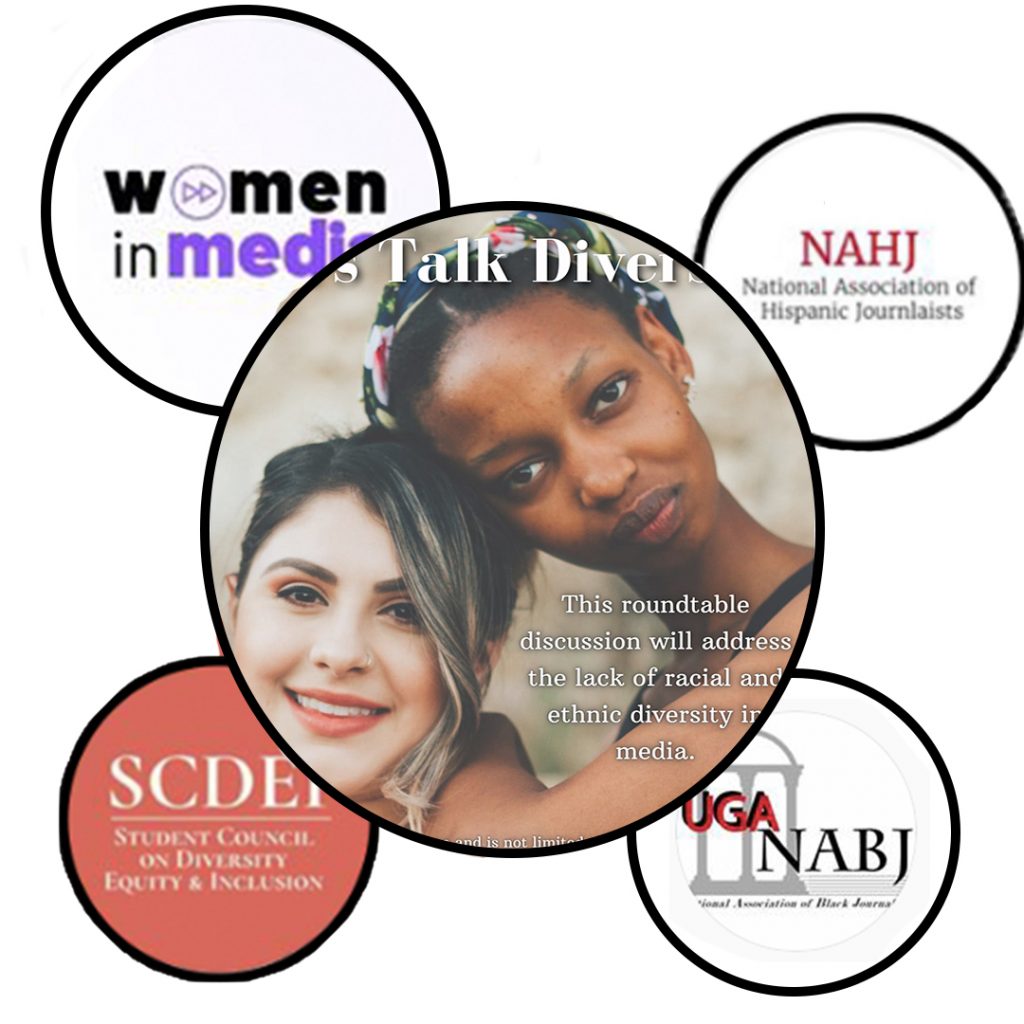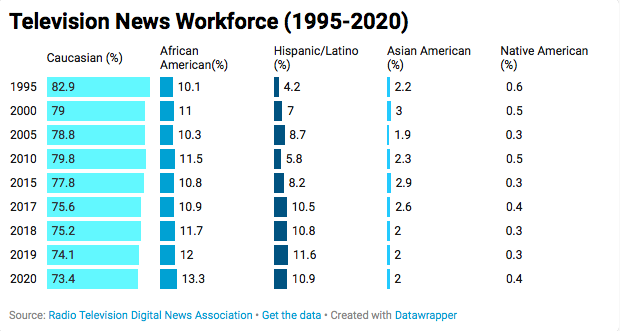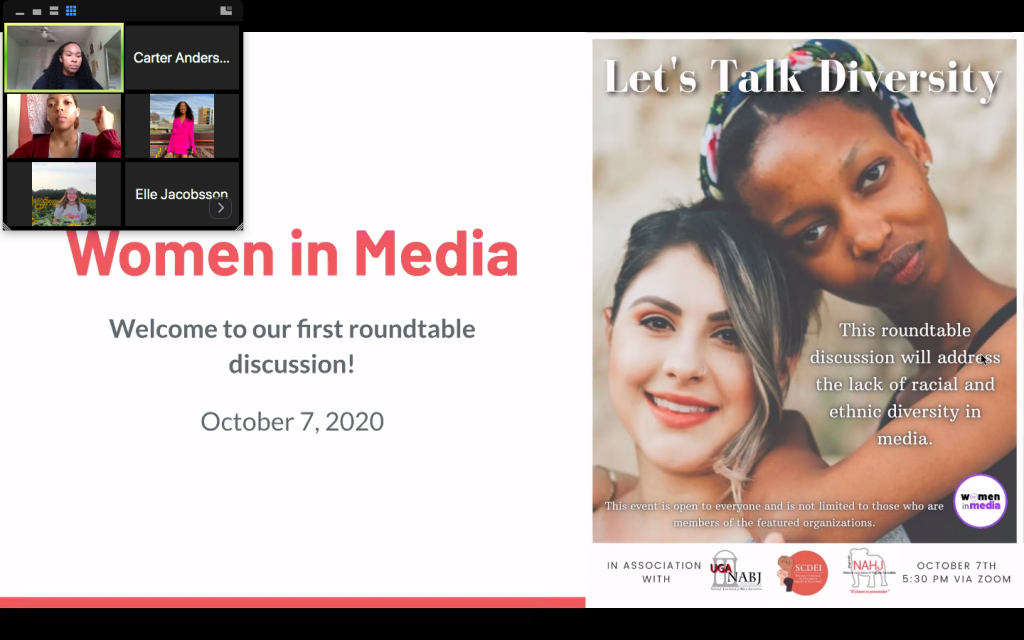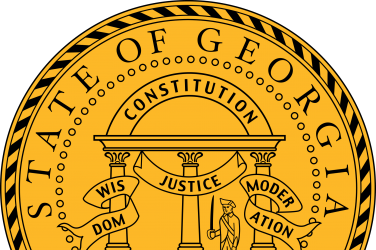
Whether it is lack of representation in newsrooms or stereotyping in the media, aspiring young journalists are calling for a revamp in the system as journalism faces a reckoning with racism.
Fifty people joined the Women in Media Organization in an online conversation on Oct. 7 to discuss diversity in media and how minority groups at the University of Georgia have faced similar issues to those in the media industry.
Why It’s Newsworthy: Journalism is a profession that covers a wide range of newsworthy topics that concern the greater population. Organizations are opening the conversation to pressing issues and offering opportunities to discuss ways to enact change regarding diversity.
Statistics on Lack of Media Diversity
Everyone digests news — no matter what age, race or gender. Although the audience receiving the new is diverse, the journalists deciding and delivering what information is newsworthy are still predominantly white males. In the television news workforce, Caucasians still dominate the majority of news platforms.
According to the Radio Television Digital News Association, the top 25 newsrooms in the country are the most racially and ethnically diverse. On average, their staff consists of 35% people of color. Although these major conglomerates and their affiliates experienced a slight increase in representation throughout the decade, 25% of newsrooms with staff between 1-10 people and 10.1% of newsrooms in the smallest markets include no people of color on staff.
Opinions Among Roundtable Participants
Participants in the Women in Media Organization online discussion said they noticed racial bias in headlines, especially with the recent surge in articles covering the Black Lives Matter movement. An example used to spur the conversation was the difference between the imagery used when covering a white man versus a Black man. They talked about how the media used pictures of Trayvon Martin using drugs but then used family photos of the white men involved in that case. Mariah Cooper, the vice president of UGA’s Women in Media and the moderator for the discussion, said the media should do a better job of honoring the humanity of everyone.
Many companies have also voiced support for the Black Lives Matter movement. However, the participants at the roundtable were concerned that companies are not combining direct action with their public statements. Participants presented solutions to this issue including how the companies need to reflect the statements inward, work on their company culture, and hire a more diverse range of employees.
Cooper said she noticed that Netflix, for instance, does depict diversity in its TV shows and movies, but not necessarily the right kind. She said light-skinned African Americans were the main source of diversity, while other ethnicities are not being portrayed as often.
Diversity in entertainment has also been a topic of conversation, especially in children’s shows. For example, Baljeet, a character in the popular Disney Channel show Phineas and Ferb, was one of the few characters of color in the series. The participants discussed how his character was written by Caucasian writers who pigeon-holed Baljeet into a typical Indian stereotype. If there had been a more diverse array of writers in the writing room, those at the roundtable said they believed the character would have been portrayed as more true to Indian culture.
‘Dragging their Feet’ on Racial Injustice
Although diversity in the media was supposed to be the main topic of discussion, the participants spent the most time talking about the University of Georgia’s handling of racial injustice on campus, especially the naming of buildings after slave owners and white supremacists. Several participants acknowledged that the University System of Georgia and an elected counsel were conversing over change in building names; however, they said they believe the process is taking far too long.
The sentiment among the group was that the minority population at UGA is treated differently and not granted the same opportunities as white students and students involved in Greek Life. Caroline Kurzawa, a member of UGA Greek life, mentioned her issues with the administration turning a blind eye to mistakes that fraternities have made in the past. UGA fraternities have faced consequences for controversial statements and the use of racial slurs, but the roundtable participants said they were discouraged as these Greek organizations remain up and running. Participants encouraged the fraternities themselves to put rules and expectations in place for members that racist behavior would not be tolerated and would have consequences.
Madison Greer, vice president of member relations at WIM, said she wishes the UGA administration had more people of color in higher-up positions who could advocate for minority groups on campus and offer more support to UGA’s ethnic organizations.
What a More Inclusive UGA Looks Like
Despite these areas of injustice, the group noted there is hope for a better future. Participants said change is necessary in order for Black and minority students to feel like UGA is a safe environment. Cooper called for more professors of color and classes that cover the history and culture of ethnic groups. Alise Crittendon, the president of Women in Media, mentioned having African-American studies complete the history requirement for UGA.
Carter Anderson is a senior majoring in journalism in the Grady College of Journalism and Mass Communication at the University of Georgia.









Show Comments (0)